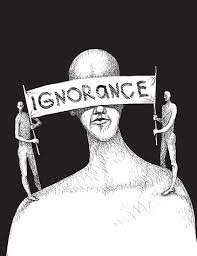Kirfel, L., & Phillips, J. S.
(2022, January 16).
https://doi.org/10.31234/osf.io/xbrnj
Abstract
Norm violations have been demonstrated to impact a wide range of seemingly non-normative judgments. Among other things, when agents' actions violate prescriptive norms they tend to be seen as having done those actions more freely, as having acted more intentionally, as being more of a cause of subsequent outcomes, and even as being less happy. The explanation of this effect continues to be debated, with some researchers appealing to features of actions that violate norms, and other researchers emphasizing the importance of agents' mental states when acting. Here, we report the results of two large-scale experiments that replicate and extend twelve of the studies that originally demonstrated the pervasive impact of norm violations. In each case, we build on the pre-existing experimental paradigms to additionally manipulate whether the agents knew that they were violating a norm while holding fixed the action done. We find evidence for a pervasive impact of ignorance: the impact of norm violations on non-normative judgments depends largely on the agent knowing that they were violating a norm when acting. Moreover, we find evidence that the reduction in the impact of normality is underpinned by people's counterfactual reasoning: people are less likely to consider an alternative to the agent’s action if the agent is ignorant. We situate our findings in the wider debate around the role of normality in people's reasoning.
General Discussion
Motivated Moral Cognition
On the one hand, blame-based accounts may try and use this discovery to their ad-vantage by arguing that an agent’s knowledge is directly relevant to whether they should be blamed (Cushman et al., 2008; Cushman, Sheketoff, Wharton, & Carey, 2013; Laurent, Nuñez, & Schweitzer, 2015; Yuill & Perner, 1988), and thus that these effects reflect that theimpact of normality arises from the motivation to blame or hold agents responsible for theiractions (Alicke & Rose, 2012; Livengood et al., 2017; Samland & Waldmann, 2016). For example, the tendency to report that agents who bring about harm acted intentionally may serve to corroborate people’s desire to judge the agent’s behaviour negatively (Nadelhoffer, 2004; Rogers et al., 2019). Motivated accounts differ in terms of exactly which moral judgment is argued to be at stake, i.e. whether norm-violations elicit a desire to punish (Clarket al., 2014), to blame (Alicke & Rose, 2012; Hindriks et al., 2016), to hold accountable (Samland & Waldmann, 2016) or responsible (Sytsma, 2020a), and whether its influence works in form of a cognitive bias (Alicke, 2000), or a more affective response (Nadelhoffer,2004). Common to all, however, is the assumption that it is the impetus to morally condemn the norm-violating agent that underlies exaggerated attributions of specific properties, from free will to intentional action.
Our study puts an important constraint on how the normative judgment that motivated reasoning accounts assume might work. To account for our findings, motivated ac-counts cannot generally appeal to whether an agent’s action violated a clear norm, but have to take into account whether people would all-things-considered blame the agent (Driver,2017). In that sense, the mere violation of a norm must not, itself, suffice to trigger the relevant blame response. Rather, the perception of this norm violation must occur in con-junction with an assessment of the epistemic state of the agent such that the relevant motivated reasoning is only elicited when the agent is aware of the immorality of their action. For example, Alicke and Rose’s 2012 Culpable Control Model holds that immediate negative evaluative reactions of an agent’s behaviours often cause people to interpret all other agential features in a way that justifies blaming the agent. Such accounts face a challenge. On the one hand, they seem committed to the idea that people should discount the agent’s ignorance to support their immediate negative evaluation of the harm causing actions. On the other hand, they need to account for the fact that people seem to be sensitive to fine-grained epistemic features of the agent when forming their negative evaluation of the harm causing action.
